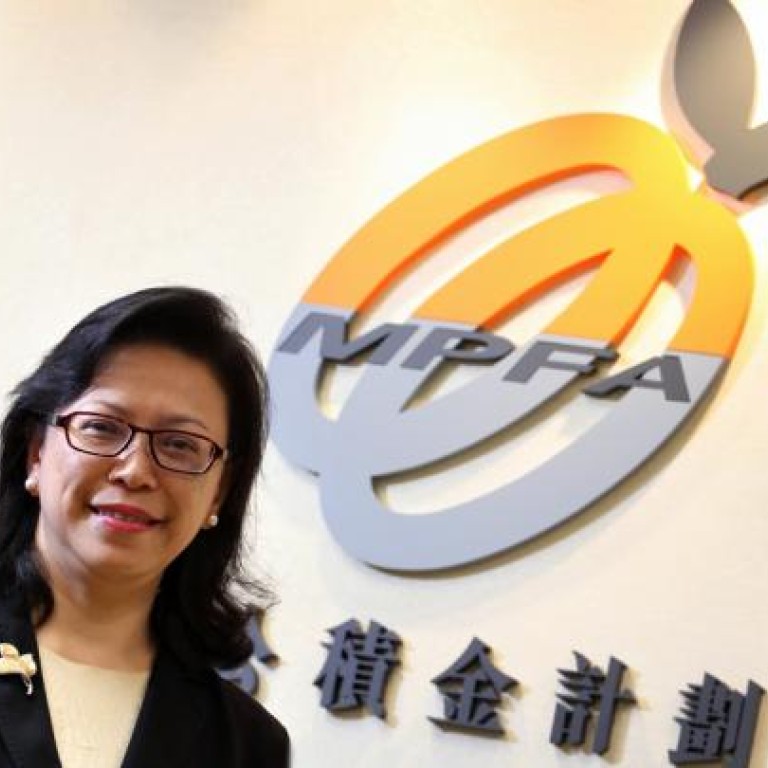
MPF providers hit back over proposal to cap fees
Regulator's proposal to reduce costs for savers is criticised by retirement scheme providers, who say it could also limit investment choices
Mandatory Provident Fund providers hit back at the pension regulator's proposal to cap fees, warning it would hurt the city's image as a free market and limit investor choice.
Diana Chan Tong Chee-ching, managing director of the Mandatory Provident Fund Schemes Authority, said on Thursday the authority was considering capping fees amid concern providers were charging too much. A Consumer Council report said the average MPF fee of 1.74 per cent was higher than other markets with similar schemes, which generally charged only between 0.5 per cent and 1 per cent.
Chan did not provide details about the proposed cap, saying only that it would be an option among other proposed measures to reduce fees to be announced next month.
Other measures being considered include a mandatory requirement that all providers have at least one low-fee fund.
Chan Kin-por, legislator for the insurance sector, opposed a fee cap. "This will limit the choice of employees as some may not mind paying a higher fee for a higher return product," he said.
Rex Auyeung, Asia president of Principal Financial, said fees should be decided by the market.
Roger Steel, chief executive of Sun Life Hong Kong, said rather than talking about adding a cap on fees, the authority should ask people about the performance of MPF funds.
"Some MPF investment funds are charging a low fee, but their performances are awful. Just being cheap may not necessarily be the best option for investors," Steel said. He added that MPF fees had been lower in recent years, as the fund size had grown.
If the authority would allow providers to use electronic methods to handle accounts, it would cut costs and bring fees down.
Thomas Chan Yu-cheong, chief executive of BOCI Prudential, said his firm reduced its MPF fee two years ago to between 0.5 per cent and 0.99 per cent.
He would not oppose a cap below 1 per cent, but said: "We need to be worried that such a cap would hurt the image of Hong Kong as a free market."
Bernard Chan, director of Bank Consortium Holding, said the cap needed to be set at an appropriate level. "It is not easy. If a cap is set too high, such as 3 per cent, it is meaningless, as only a few funds charge above it. If the threshold is set at 1 per cent, it would hit too many existing funds and would lead all providers to offer only very simple products," he said.
Elvin Yu, head of institutional business, China and Southeast Asia, for Allianz Global Investors, said a cap was one option but there were no single quick fixes.
Set up in 2000, the MPF is a compulsory pension scheme covering all 2.35 million employees other than those who were already paying into a company pension scheme at the time. It requires employers and employees to each pay 5 per cent of an employee's salary - up to a combined total of HK$2,500 a month.

